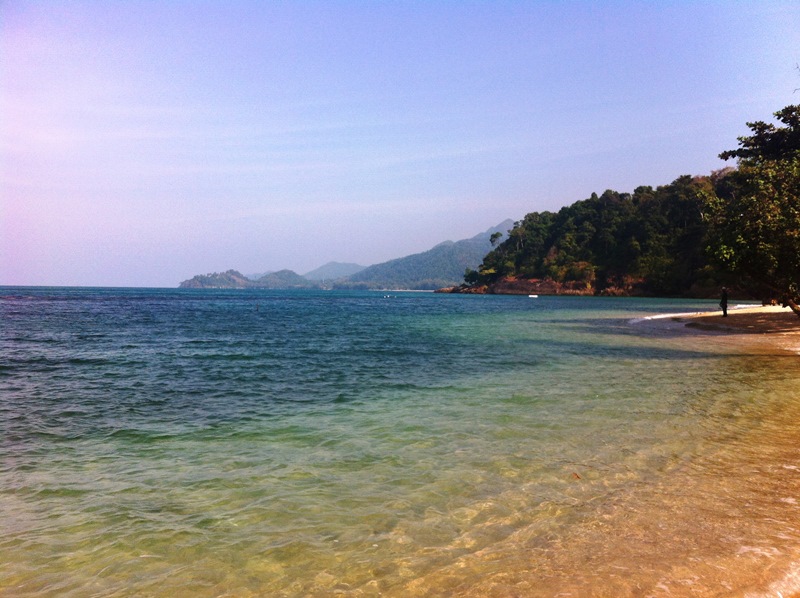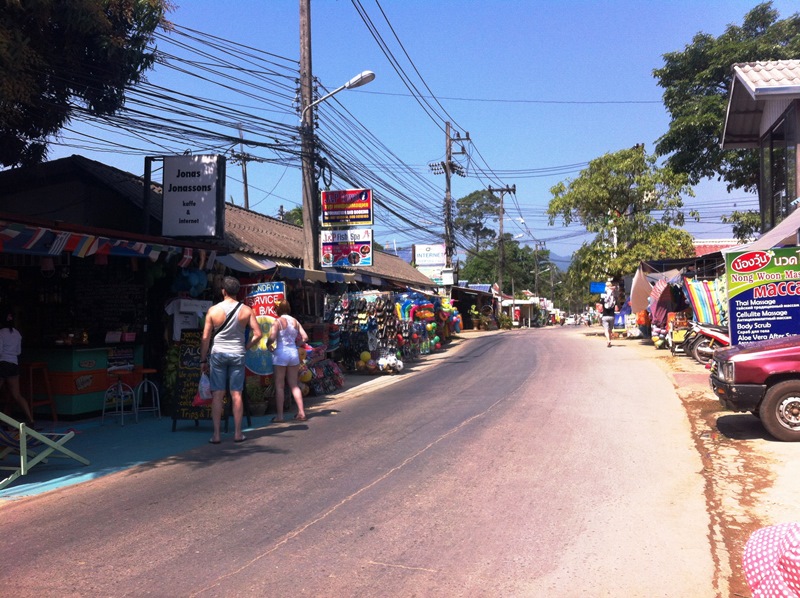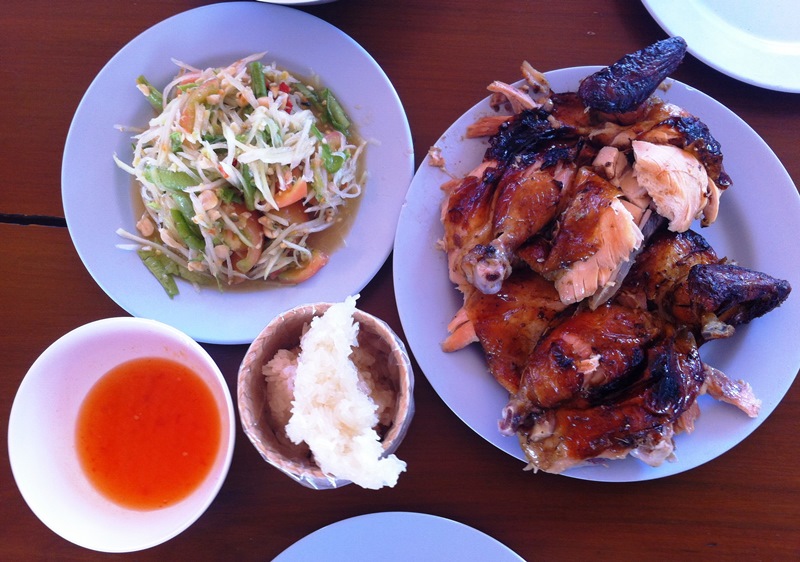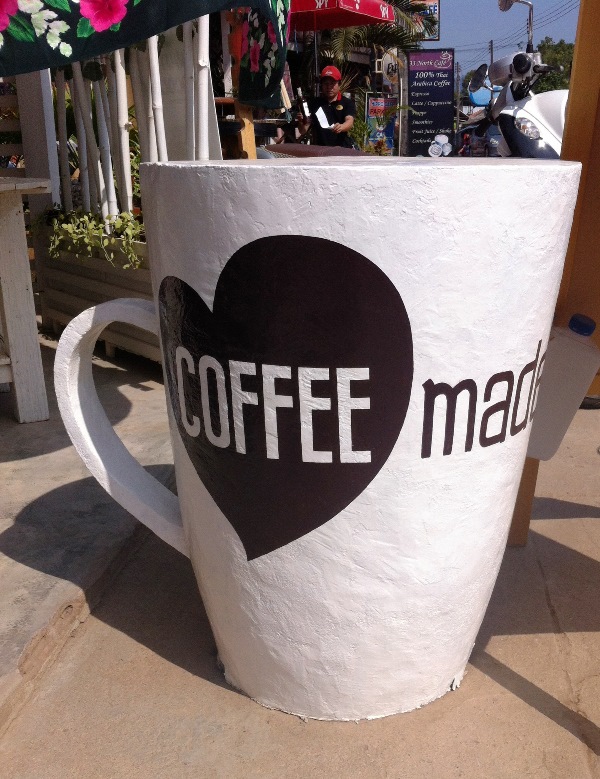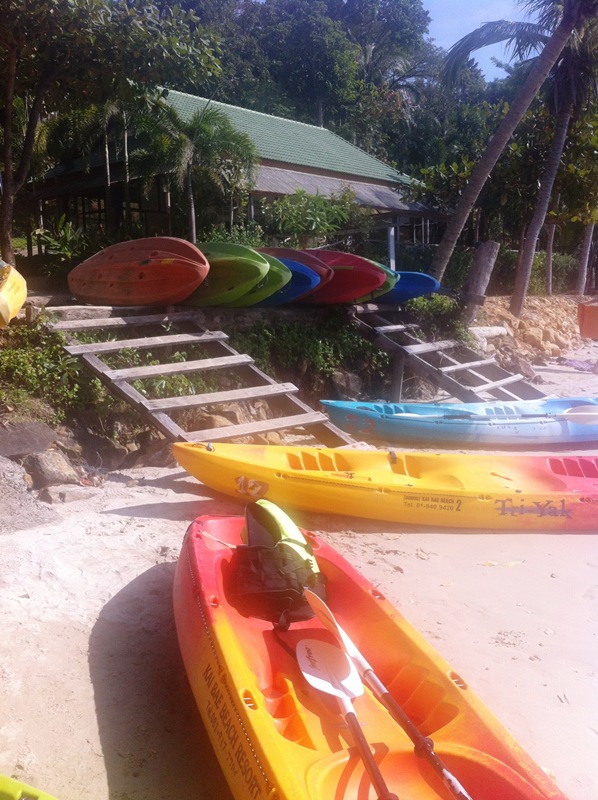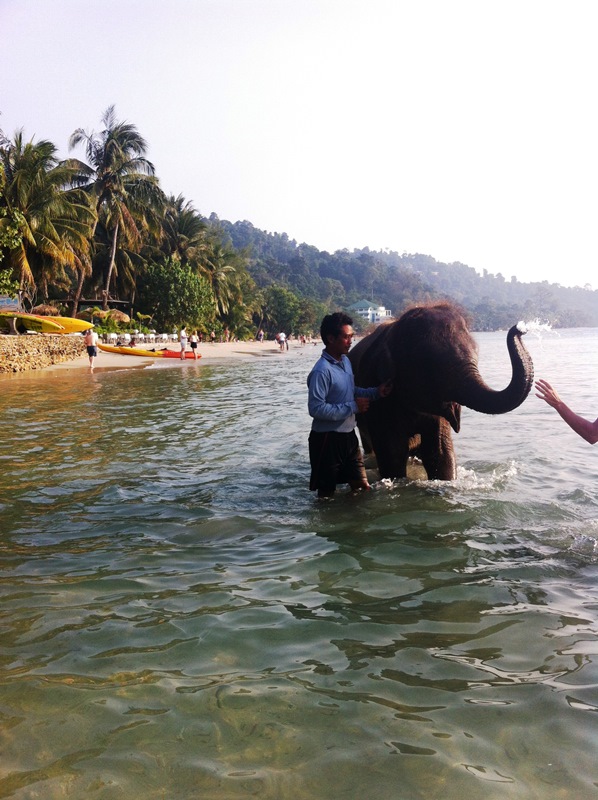Despite the presence of some newer resorts and hotels, there is still a rawness to Koh Chang. It is Thailand’s second largest island but far from its busiest, with no high rise development and a jungle covered interior. The thatched bungalows like the type we stayed in here ten years ago still remain, though some have had a bit of a makeover and a price hike. There are lots of mid-range places to stay, and the atmosphere is decidedly chilled, even at the busiest beach, White Sands. Roaming vendors on the beach are few and far between, and you can seek out nightlife if you want it, or easily avoid it.
We recently spent a week on Kai Bae Beach, an idyllic spot with lots of families with small kids around (perfect for us!). The beach is lined with palm trees and rope swings, and a scattering of low-key resorts. Behind the beach lies an eclectic mix of backpacker bars, cafes, restaurants, stalls selling flowy beach dresses and ubiquitous massage places. After much exploration on our recent Koh Chang escape, here are my picks of the best of Kai Bae Beach:
Food + Drink
Most of the places to eat and drink are located on the road behind the beach. In amongst the usual mix of Thai and Western offerings we found some real gems. Must-eats at Kai Bae include:
+ Barrio Bonito, the most authentic Mexican I’ve ever had in Asia (with all Latino staff you know you’re onto something). Head here for delicious tostadas, tacos and the best margaritas.
+ Took Ka Ta Kai Moon was the best local Thai place we tried. There are chickens cooking over charcoal out the front, and an open air kitchen where women are busy pounding mortar and pestles and making Thai salads. Highly recommended is their amazing som tam, Thai style BBQ chicken and sticky rice, washed down with coconuts.
+ Riddim Shack, where we had jerk chicken and Carribbean-style dirty rice – a unique take on local ingredients. British owner David mans this little Reggae Bar tucked down ‘Walking Street’ – a name usually assigned to girly bar strips in Thailand, though Kai Bae’s version was low key (and decidedly un-girly). The beach was unseasonably quiet given the protests taking place in Bangkok, so we had to pre-order the food here the day before (and it was well worth doing so!).
For coffee, we tried all the main places on Kai Bae, from the little Italian Aperol bar and cafe, to the fairtrade, organic Northern Thai coffee shop, but the best we tried was from Mochaccino. The other cafe worth seeking out at Kai Bae is Papa’s Deli, a Euro bakery/deli with amazing chocolate croissants and charcuterie, should you need a break from all things Thai.
Things to do
Kai Bae is more for relaxing and swimming than strenuous activity, but we did hire kayaks from a stand on the beach for 100 baht/hour (that’s about $3!). Our kayak fit two adults and two children, and it was fun traversing most of the beach, keeping an eagle eye out for any good places to eat along the way.
Every afternoon, two baby elephants were led by their handlers into the water at the northern end of the beach. They were trained to spray water on anyone who had a ride, and stand up on their hind legs. I wasn’t entirely sure about the ethics of riding baby elephants trained to perform timely tricks for tourists, but their cuteness was undeniable.
We ventured to several other beaches on the songthaews that drive up and down the main road (you flag them down and jump in, and the fare for four of us ranged from 50 baht for a short distance to 100 baht to another beach). White Sands is much more developed than the others, yet still manages to retain that backpackery charm with ramshackle restaurants on stilts, bungalows and cheap massage huts mixed with the more upscale resorts.
Lonely Beach is quiet with large swathes of beachfront land entirely undeveloped – which is surprising in a place like Thailand. It’s still the most chilled out, but no longer the domain of 20-something backpackers, with more middle-aged and older Europeans and Russians in the mix.
Massage huts are everywhere you look on Koh Chang (with most signposted in English and Russian) – this is another huge difference from when I first visited in ’03, when they were few and far between. The going rate for a Thai massage is 250 baht/hour (around $7) to about 400 baht/hour for different variations of massages from oil to aloe vera. The best massage I had was at Kai Bae’s ‘The Bodiwork’ on the main road behind the beach, which offered a more a spa-like atmosphere and professional experience. I felt like I was walking on air after a visit, and while the prices are slightly more than at the beach huts, it’s definitely worth it.
I loved our stay at Kai Bae and felt it was the right beach ‘fit’ for us – a comfortable middle ground of not too busy, not too crowded, but not too quiet or isolated either. For more info on Koh Chang and what each beach offers, I am Koh Chang offers a no holds barred look at the island, and there’s also the super informative Koh Chang Guide.

